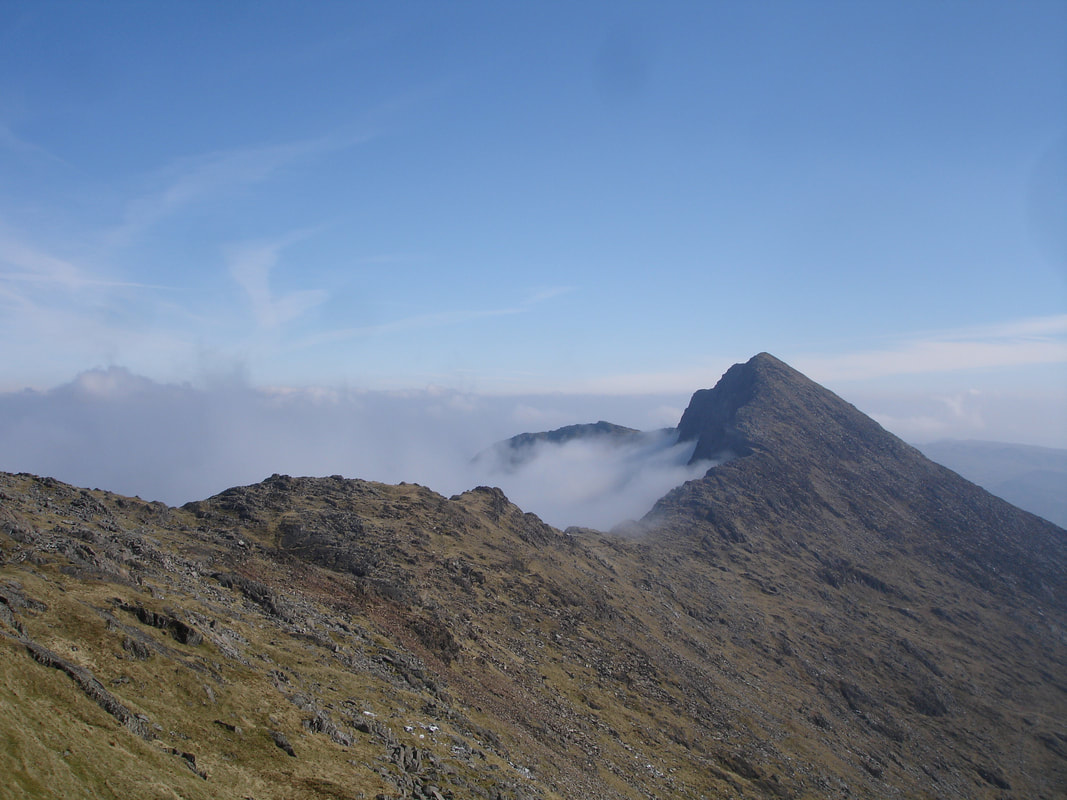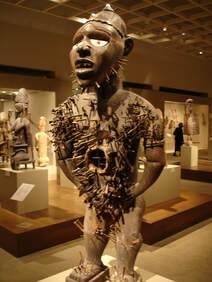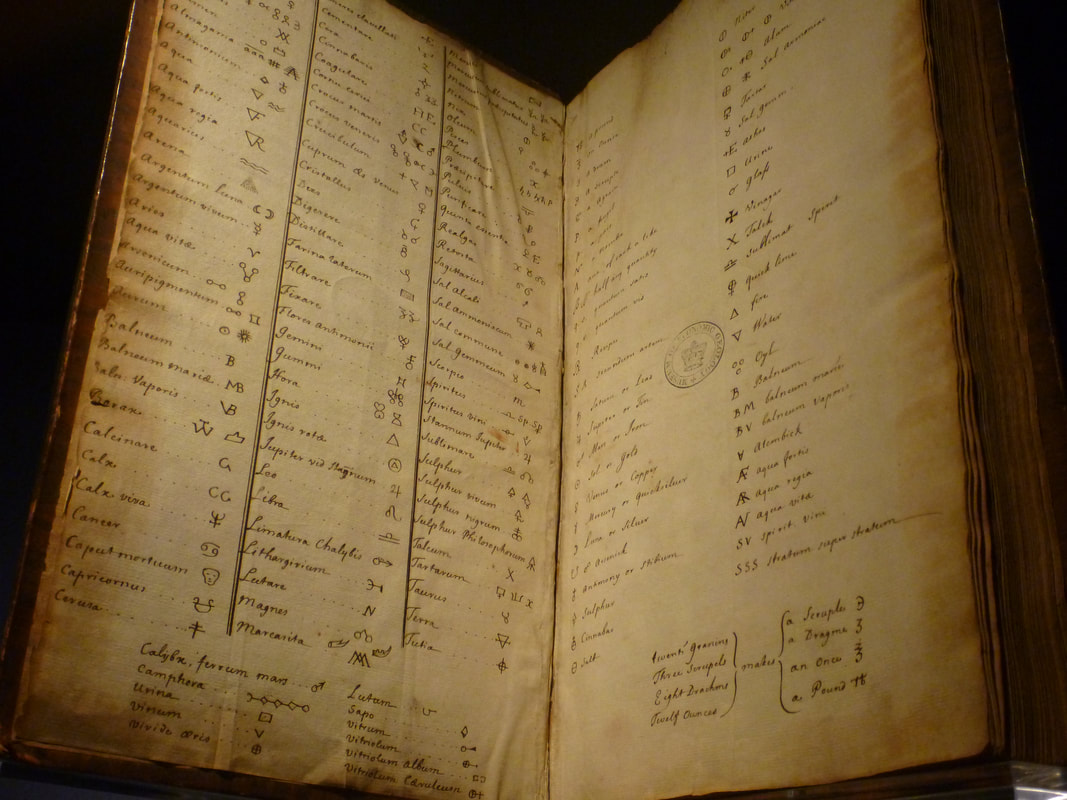|
Episode 144 - Close to The Edge
The Thursday Thesis – 28/3/2019 The buzzard’s wing flashed white at around 900 feet, just off to starboard, turning easy circles in lift and I eased the stick into a gentle banked turn, feathering the rudder until the variometer wolf-whistled me into the twisting, rising air where I settled in below the great bird. “Nice...good” said Dave the instructor, his voice calm and steady. The vario whistled contentedly as we gained height, 1300... 1400...1500 feet. “What are you thinking?” Dave asked “I’d rather be in my studio, playing guitar” I answered. “I think I’m done, Dave.” “Ermmm... what do you mean?” he said. After a few words I exited the thermal and began to circle down and back toward the airfield, enjoying the scenery and the feeling of release. This was my thirteenth flight and I was well on my way to earning my glider pilot’s licence – and I couldn’t have cared less. For most of my life flying had been the ultimate confrontation with fear. I think it all started when I scared my mum by climbing onto the flat roof of the shed – I’d be about six years old at the time: six years old and fearless. Before then I can’t remember being afraid of heights, but since then – like a fissure in my character – it’s always been there. “Feel the fear and do it anyway” is one approach that’s become a mantra in the self-help world, and it’s helpful – up to a point. But the fear never goes away, it’s always there, ready to defend its residence in my mind. Old beliefs, childhood indoctrinations and phobias have deep roots; the older the belief, the harder it is to shift, and whatever gets into our minds first always resists most strongly. But in our moments of greatest fear and closeness to death we feel the strongest love of life and the greatest clarity. Looking our own fear of death in the eye and staring it down puts things nicely into perspective, so they say, and I can personally verify that a Glock 9mm shoved in your face is a tremendous focus-puller. No wonder we get hooked on the adrenaline released by massive risk or danger, chased up with a jolt of dopamine when we escape from whatever bloody stupid position we’ve gotten ourself into. It’s a lethal combination... The guidebook says that deaths are a regular occurrence here. And the Mountain Rescue people told me it was “extremely dangerous”. I walked past the battered sign that read "Danger - Crib Goch" and scrambled toward, then up over The Pinnacle stones standing sentry to the west . Edging along until I reached the sharpest of the knife-edge where the drop-offs to either side were 300 feet or more. If I stopped I’d be crag-fast, afraid to go either forward or back; certain that if I slipped it would be sudden, a handful of seconds – whirling and spinning downward over sharp remorseless granite... earthward gliding. Inch by careful inch until the edge became blunted and the exposure was less fierce, finally rejoining a well-worn path down to the valley road where my boots thundered down as I starined my eyes to catch a glimpse of my girl's car, slogging up the snake-road throught her boulder field to the pass. I don’t know if I’ve ever felt more glad to be alive or more grateful to see anyone than at that moment. And that’s what I mean about fear and immediate danger of death being great clarifiers: they point out who and what it is you want to stay alive for. © Neil Cowmeadow 2019 Please Like and Share The Thursday Thesis with your friends, family, and your invisible friend. I’d love to hear your comments, along with any ideas you’d care to hurl at me. [email protected]
0 Comments
The Thursday Thesis – 21/3/2019
Bored... That was Sunday Overwhelmed... That was Tuesday. Today is Thursday, so god knows what will happen: nobody knows what will happen on any given day. We can best-guess, but we can’t be sure – and this is entirely for the best, in my opinion. Close your eyes and imagine how unutterably dull life would be without the constant change which goes on around us...each new day merging seamlessly with the same grey sameness of the preceding day...for ever. Could you think of anything worse than that, the eternity of changelessness mediocre grey sterility? So it’s for the best that we live constantly between extremes of behaviour and opinion; that's humanity’s greatest gift – consciousness and sensitivity to change. The truth is that we need both change and sameness in our lives: too much change we call “overwhelm”, and too much sameness we call “boredom”. We’re always on a continuum, between the extremes of one thing or another: between wealth and poverty, optimism and despair, love and hatred – we move from one point on the line to the next. Seldom do we realise that our position on the continuum is largely a matter of choice. Mostly we are buffeted and blown around by circumstances, social norms and the expectations of others – overlooking the fact that external factors will vary, but our responses to those factors is a matter of choice. So try this – it works for me when things look bleak, and hope begins to fade. Out loud, I chant my mantra: “nothing stays shit forever, nothing stays shit forever...” over and over again. Pretty quickly it dawns upon me that nothing stays shit forever – what a divine revelation! The very next thing I say out loud is “I know that whatever happens, I’ll handle it”. I gesture and flap my arms around a fair old bit, too, emphasising to nobody in particular that I absolutely believe my own words. And do you know what, I find that my position on the despair/optimism continuum has shifted, and I know I can handle just about anything – just like you can. © Neil Cowmeadow 2019 Please Like and Share The Thursday Thesis with your friends, family, and your invisible friend. I’d love to hear your comments, along with any ideas you’d care to hurl at me. [email protected] The Thursday Thesis – 14/3/2019
According to the Bible story, God rewarded King Solomon for his sacrifice by granting the king a wish. Solomon was no mug and asked Big G for the gift of Wisdom, which God duly bestowed upon him. Wisdom has always been associated with older people – youngsters seldom have it – and It seems such an earnest quality that we should definitely try to get our hands on some. But what is Wisdom? I’d define it as a deep and wide understanding of a situation or a field of study: the depth comes from prolonged attention to one’s theme or idea, the breadth from wider interests both connected and seemingly unconnected to one’s field. To put it another way: paying attention to one thing for a long time, whilst remaining curious about everything else. So Wisdom isn’t the uber-geek’s obsession with the minutiae of their fixation: neither is it the superficial casual interest in whatever is flavour of the month. To the Wise Person, everything is germane and pertinent – everything counts - either within their field or setting it in context with all other things. This thought crystallised for me as I listened to an audiobook whilst driving. The author said that “A fool sees only the differences – the Wise Man sees the sameness”. Ping – message received! That was what I’d been niggling at as I tried to define Wisdom in my own mind: the Wise Man saw that everything was the same because he’d lived a long time and could observe patterns because he’d been paying attention all that time. Tribal Elders were revered for their wisdom, their treasure hoard of accumulated experience and condensed time. Deep insight into one’s speciality, coupled with an understanding of its context and place in the universe is Wisdom. As a teacher and coach, this is my stock-in-trade. © Neil Cowmeadow 2019 Please Like and Share The Thursday Thesis with your friends, family, and your invisible friend. I’d love to hear your comments, along with any ideas you’d care to hurl at me. [email protected] The Thursday Thesis – 7/3/2019
A wise man once told me that if I wasn’t happy with the answers I was getting, then I should learn to ask better questions. Back then I was groping blindly for a better understanding of the world, of people, and – most importantly – of myself. I wanted to know the answers to the questions I asked myself almost every morning, as I woke up and felt so sad that I had to live yesterday all over again; sometimes sobbing under the duvet until the very last minute and I had to go to work. How did I get here? Why do I do a job I loathe? Why can’t I make more money? You get the idea, don’t you? It’s very common for people to feel that way: I know, I’ve been there. So when Peter talked about “better questions” I started listening to people much more closely. I listened for clues from the people around me who were more successful and happy than I was. Just about everybody seemed happier and more successful than I was, so I heard a lot of good stuff. Over time I began to distil what I’d learned down into simple questions that I could use to help myself and other people. And as I continued to learn and absorb information from increasingly successful and influential people I tweaked, reworked and re-jigged my questions. And over time this has become a way of thinking and approaching the business of life, at least for me. So I’d like to share just three of my magic questions – perhaps you’d like to try one or two of them out for yourself: 1) “What’s good about this?” Just asking this question prompts me to think that – whatever the hell is going on – there will be a positive aspect to it. There is always a positive, but you might have to hunt around to find it. The very best way to start to hunt for anything is to define what it is you are looking for: until you know that, you can’t even begin. The old “needle in a haystack” you are looking for is even harder to find if you don’t even know you are looking for a needle: true or true? Asking myself to find the positive in a situation distracts me from magnifying the negative aspects of it, so I tend to remain optimistic in the face of adversity. This is why I wake up every morning (and I’m still not dead, so I must be on a winning streak, right?) and ask myself “...what’s good about waking up today?” That’s such a great question, isn’t it? 2) “...And before that?” I am a big fan of goal-setting and making plans – I did it for years but achieved very little in the way of results. What I learned about goals is that they work, but only if I work. When I think of goals I think fifteen years out from now, and imagine big things. Usually this means that my goals are too big, too far away and altogether too fuzzy to draw me towards them. In NLP terms they are big chunks, and I needed to be dealing with small chunks...but how? Well, I just ask the magic question “...and before that – what did I do before I crossed the finish line of that great big chunky goal?” Now I have to think about, and write down, the step immediately preceding the achievement of my massive fifteen-year goal. “...and before that?” I ask the magic question again, and write down the step preceding the penultimate step before I hit my goal. “...and before that?” The magic question works backwards from the final goal to something I can crack-on with today. It will be small enough and close enough that I can handle it, and it will get done. If it’s still too big, I’ll re-ask the magic question again until I can find a small enough chunk of the task that I can do, then deal with that chunk before I move on to the next chunk. Now that is a great question, don’t you think? 3) “...And what else?” I use this a lot when I’m coaching and teaching – usually when my client or student has a moment of insight or clarity into their previous situation, solves a problem or experiences a shift in perception. They’ve just had a singular moment, a revelation, if you will – but why stop at just one? Asking “...and what else?” sends the brain off in search of more revelations, insights, solutions and answers. Why stop at one? If you are capable of having one great idea, the chances are that – if you ask yourself to find it – you’ll find a few more, won’t you? So there you have it – three of the best questions I never used to ask myself, but now I ask all the time. And whilst they’re not difficult questions, they are unusual and useful questions, helpful questions. And if you try them for size, they might work for you. © Neil Cowmeadow 2019 Please Like and Share The Thursday Thesis with your friends, family, and your invisible friend. I’d love to hear your comments, along with any ideas you’d care to hurl at me. [email protected] |
Share it with your friends
It's Like This...The Thursday Thesis shares ideas which I think are worth spreading. Archives
May 2022
Categories
All
All content on these pages is the intellectual property of the author, unless otherwise stated, and may not be used in any form or reproduced under any circumstances without the authors permission.
|




 RSS Feed
RSS Feed